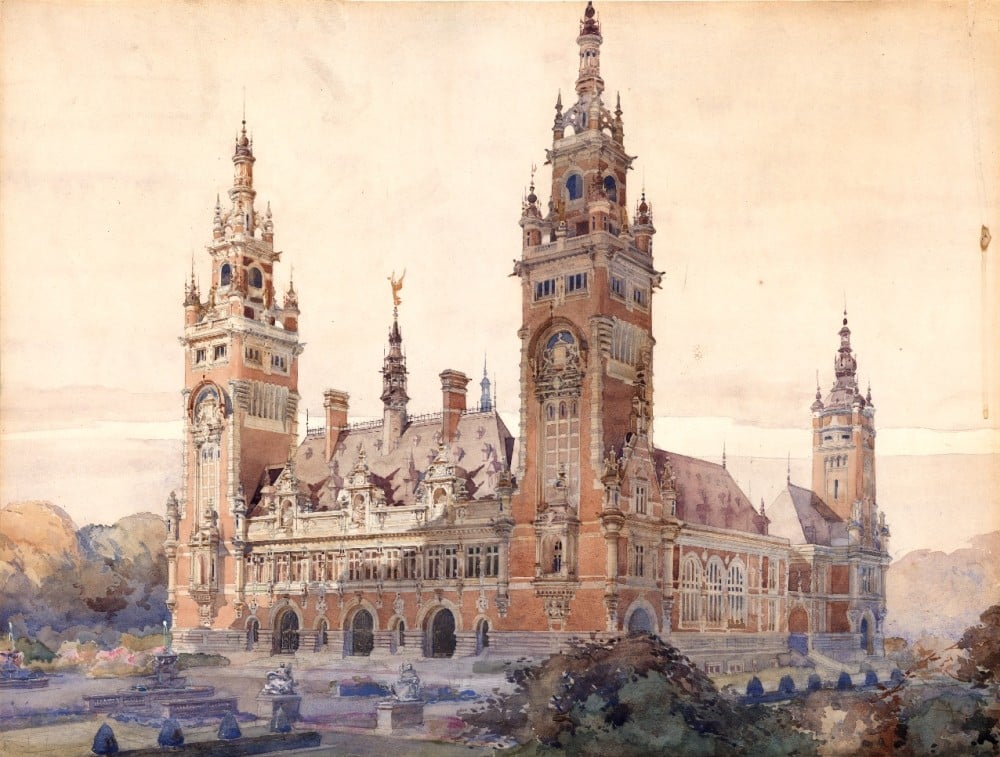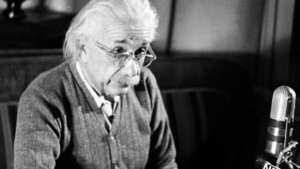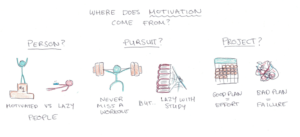Sometimes, especially in these difficult quarantine days, as time flies by as if it is endless, we can despair about the future and do not even want to get up from our seat. However, the world continues to exist in its new form, and it will continue to exist. Of course, we can adapt to this new situation. What did Darwin say; “Neither the strongest species survives, nor the most intelligent… It is the most adaptable to change that survives.”
Roman Gelperin, in his book “The Motivation Guide”, removes the intimidating concept of “will” from the table and associates motivation with “satisfaction of pleasures”. So to take action, work or get rid of a bad habit, If the season is spring, it looks much more attractive and easy.
1) Passion and excitement for the work to be done is the most important source of motivation.
2) Worrying about the negative consequences of the job leads to avoidance. Worry sometimes motivates, but mainly leads to procrastination and loss of self-confidence.
3) It is difficult to switch to a less pleasurable action after an action that gives extreme pleasure, such as watching TV or playing a computer. The best time is “after waking up” in a neutral state, or a less pleasurable distressing time should be placed between the two actions.
4) All attention must be given to the work, otherwise we will feel distressed. As attention increases, comprehension increases.
5) Reading and writing require full attention, but listening to music while doing simpler tasks (eg mechanical work) increases motivation.
6) Drinking coffee increases pleasure.
7) It provides success, motivation and the will to continue.
8) It is necessary to divide the work into small parts and focus on that part only. A sense of accomplishment and happiness will be provided when each small piece is completed.
9) The pleasure received largely depends on the degree of dedication to work. Distractions (fatigue, hunger, fullness, watching TV, etc.) reduce pleasure. The person fails to take the necessary and sufficient steps to do the job, eventually losing the success and the feeling of happiness that comes with it. He starts to worry about not being able to do the job, and because he can’t get pleasure, he gets away from the job and cannot continue.
10) If we have no experience with the job, our expectations are unreal or fictitious. It causes concern.
11) Thinking that the job is difficult and requires a lot of effort makes it difficult to start the job. Likewise, thinking that work is boring reduces motivation.
12) Remembering the results of the work provides motivation, but the decision to reach the result must be made in advance, it is difficult to make a decision again at each stage.
13) Feelings of guilt and shame do not motivate, it leads to loss of self-confidence.
14) Thinking that you are doing something useful creates a feeling of excitement and relief.
15) It’s a good idea to combine actions with visuals. (For example, imagining wasting time with an image of an unhappy self, and working with an image of a learning and happy me)
16) Making the work environment attractive and getting rid of distractions increases motivation. Also, doing harmful actions can be physically prevented. (For example, social media accounts can be closed.)
17) Working with friends makes work fun.
18) Listening to nature sounds while working increases motivation.
19) One can concentrate on work to get away from another emotion. (For example, writing a thesis to get rid of the quarantine psychology?)
20) It helps to imagine doing the work before you start. (For example, visualize getting up from the sofa, turn on your computer and start working)
21) Setting a reward for yourself as a result of your work increases the desire.
22) For those who wake up positive or neutral in the day, avoiding high-pleasure activities before working, and for those who wake up with distress, taking actions that will make them neutral or somewhat positive (for example, walking or meditating, having breakfast, taking a hot shower) make it easier to get started.
2) Worrying about the negative consequences of the job leads to avoidance. Worry sometimes motivates, but mainly leads to procrastination and loss of self-confidence.
3) It is difficult to switch to a less pleasurable action after an action that gives extreme pleasure, such as watching TV or playing a computer. The best time is “after waking up” in a neutral state, or a less pleasurable distressing time should be placed between the two actions.
4) All attention must be given to the work, otherwise we will feel distressed. As attention increases, comprehension increases.
5) Reading and writing require full attention, but listening to music while doing simpler tasks (eg mechanical work) increases motivation.
6) Drinking coffee increases pleasure.
7) It provides success, motivation and the will to continue.
8) It is necessary to divide the work into small parts and focus on that part only. A sense of accomplishment and happiness will be provided when each small piece is completed.
9) The pleasure received largely depends on the degree of dedication to work. Distractions (fatigue, hunger, fullness, watching TV, etc.) reduce pleasure. The person fails to take the necessary and sufficient steps to do the job, eventually losing the success and the feeling of happiness that comes with it. He starts to worry about not being able to do the job, and because he can’t get pleasure, he gets away from the job and cannot continue.
10) If we have no experience with the job, our expectations are unreal or fictitious. It causes concern.
11) Thinking that the job is difficult and requires a lot of effort makes it difficult to start the job. Likewise, thinking that work is boring reduces motivation.
12) Remembering the results of the work provides motivation, but the decision to reach the result must be made in advance, it is difficult to make a decision again at each stage.
13) Feelings of guilt and shame do not motivate, it leads to loss of self-confidence.
14) Thinking that you are doing something useful creates a feeling of excitement and relief.
15) It’s a good idea to combine actions with visuals. (For example, imagining wasting time with an image of an unhappy self, and working with an image of a learning and happy me)
16) Making the work environment attractive and getting rid of distractions increases motivation. Also, doing harmful actions can be physically prevented. (For example, social media accounts can be closed.)
17) Working with friends makes work fun.
18) Listening to nature sounds while working increases motivation.
19) One can concentrate on work to get away from another emotion. (For example, writing a thesis to get rid of the quarantine psychology?)
20) It helps to imagine doing the work before you start. (For example, visualize getting up from the sofa, turn on your computer and start working)
21) Setting a reward for yourself as a result of your work increases the desire.
22) For those who wake up positive or neutral in the day, avoiding high-pleasure activities before working, and for those who wake up with distress, taking actions that will make them neutral or somewhat positive (for example, walking or meditating, having breakfast, taking a hot shower) make it easier to get started.















